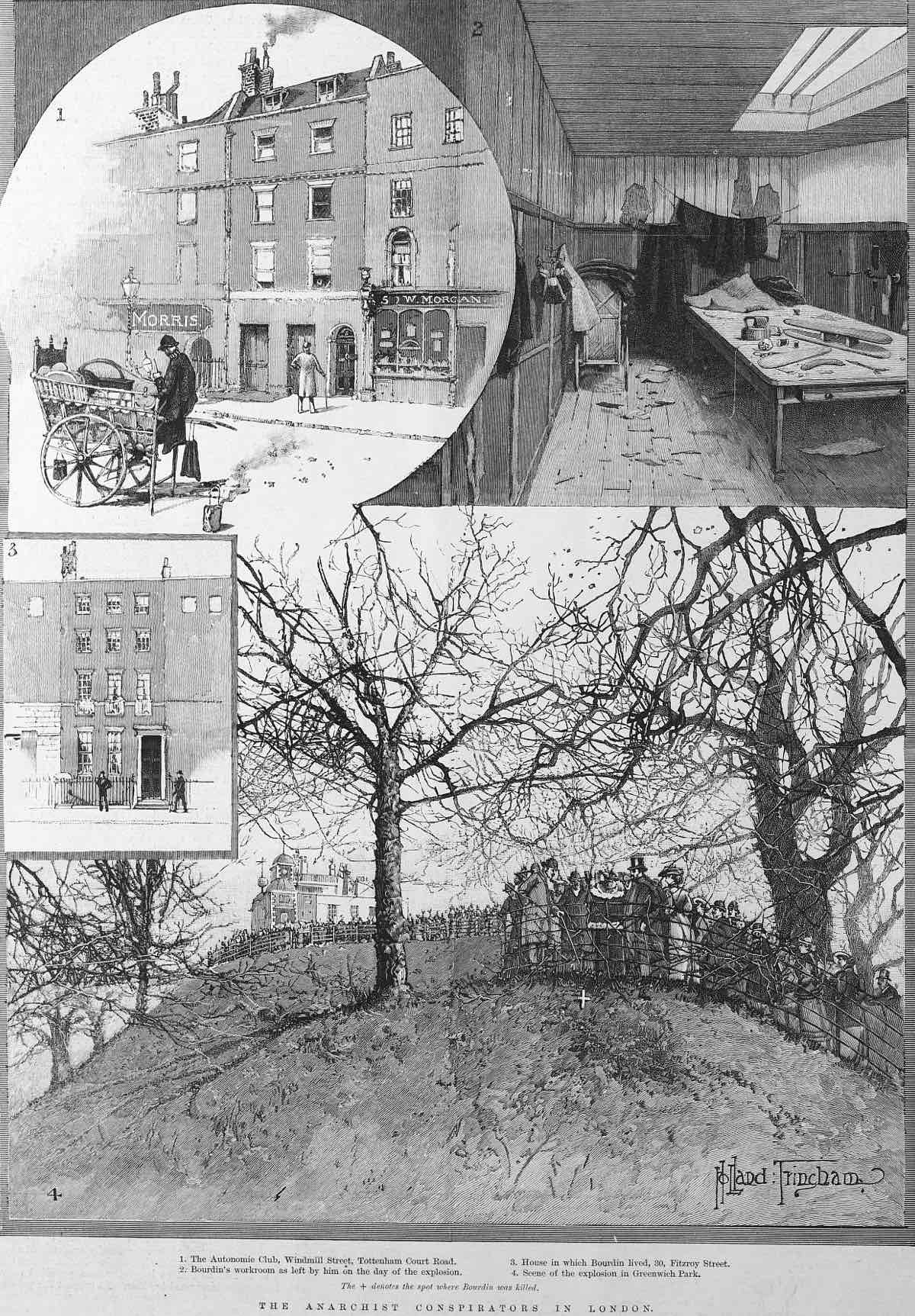Three Good Questions
This is the fifth in an ongoing series of posts about historical research, featuring news articles, adverts, and other sources mostly from Britain in the 19th century.
Just for fun, imagine you stumbled across the article reproduced below during your research. What could you learn from it? How many research rabbit holes would it lead you down? In what new directions might it take your writing?
If you interrogate the images and words closely, what Three Good Questions would you want answers to first? You can send me your suggestions via the form at the bottom of the page.
I’ll collate the questions, and begin to answer some of them, in a follow-up post. Subscribers to the ThreesWrite Newsletter will receive that before it’s published on the website.
Here are my first Three Good Questions:
- What had Martial Bourdin intended to achieve?
- Did the Autonomie Club have British members as well?
- Were there any accomplices? (and was Henri Bourdin among them?)

Illustrated London News (24th February 1894)
Anarchist Conspirators In London
An accidental death, hideous and horrible, but scarcely deplorable, as it deservedly ended the pernicious existence of one of those detestable criminals who plot the wholesale murder of the innocent, the destruction of private and public property, and every other cruel mischief that fiendish cunning devises for the vain purpose of terrifying society to overthrow all social and political institutions, took place on Thursday afternoon, Feb. 15. in Greenwich Park. It is no new thing in London that gangs of foreign assassins should hold their secret meetings here, and should here prepare those explosive bombs which have been used either in the chief cities of France, Russia, Germany, Italy, or Spain, or a few years since in England and Ireland — Continental Anarchists and Irish-American Fénian “Invincibles” being miscreants of similar complexion. The Orsini bomb of February 1858, which failed to kill Napoleon III. in Paris, but killed and wounded other persons, was made in this country, and the assassin who threw it was resident in this city. No one, therefore, need be surprised at the discovery, now, of the “Autonomie Club,” in Windmill Street, Tottenham Court Road, frequented by about a hundred of the Anarchists belonging to different European nationalities, one of whom, a Frenchman named Martial Bourdin, has, fortunately for mankind, killed himself unintentionally with the vile and dreadful instrument that is in vogue among them for their absurd and monstrous schemes.
This man, born at Tours and twenty-six years of age, a tailor by trade, who had been some years in America, came to London four months ago, and joined his brother, Henri Bourdin, who is in the same trade, occupying a small workshop in Great Titchfield Street; but he was latterly out of work. On the day of his death, he travelled by the railway from Charing Cross to Greenwich, and walked into the park to the grassy knoll upon which stands the Royal Observatory, containing the telescopes and other costly scientific apparatus of the Astronomer-Royal. The dusk of evening had begun, near five o’clock, when the sound of an explosion was heard, to east and west, beyond the limits of the park. It was supposed that some accident had happened at the Royal Observatory, and the park-keepers hastened thither. They found this man on the path up the knoll, on his knees, in a pool of his own blood, still living and able to say, in English, “Take me home,” but with several large and deep wounds in the abdomen, one penetrating back to the spine, other wounds on the thighs, and the left hand torn off. He seems to have stumbled and fallen forward upon the bomb, which he carried in his left hand, and which was made to explode on striking the ground. They carried him, yet alive, down to the Seamen’s Hospital, where the surgeon attended to him, but he died fifty minutes after the explosion. He said nothing else but once, “I feel very cold.” A small fragment of the bomb, a curved piece of iron rather less than half an inch thick, with grooves on the inner surface, was extracted from the largest wound in his body. He was a very short man, 5 ft. 1 in. in height, with blue eyes, fair silky hair and moustache, and no beard. The spot where he was found is sixty or seventy yards from the Royal Observatory building. His pockets contained nearly thirteen pounds in money, papers concerning the preparation of explosive chemical mixtures, a ball ticket, and a card of membership of the Autonomie Club.
Source: Illustrated London News (24th February 1894)



